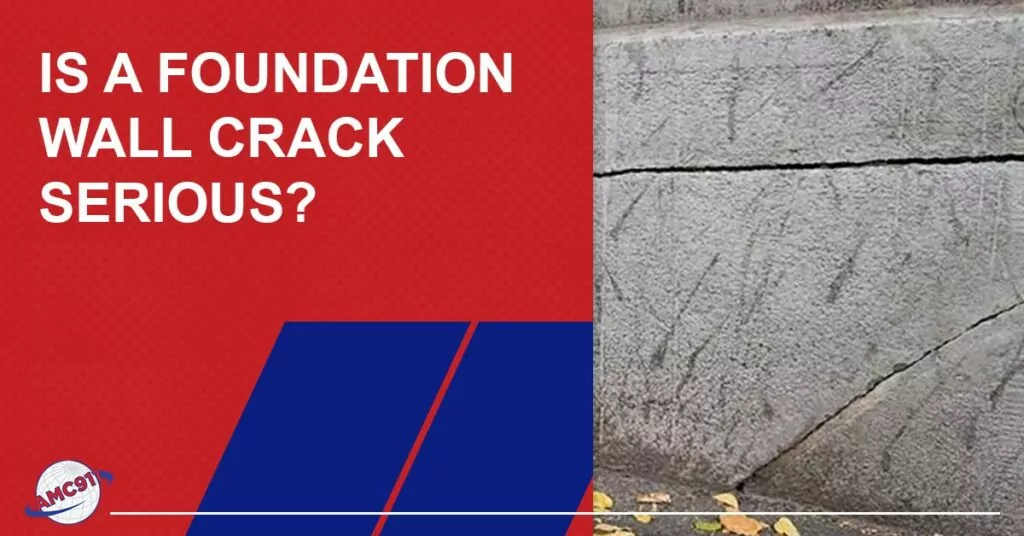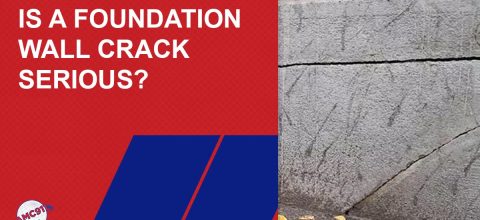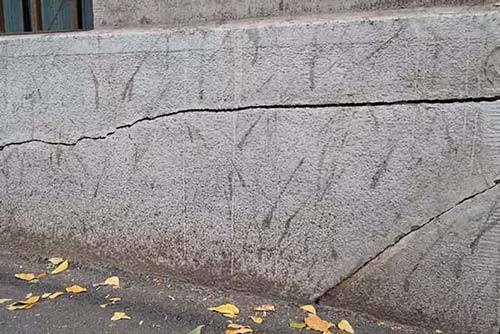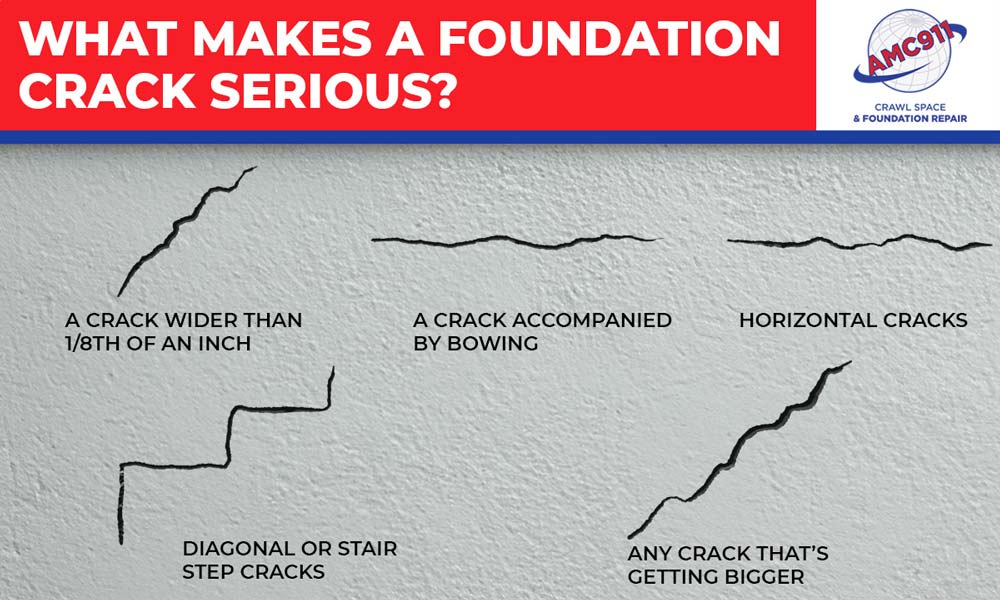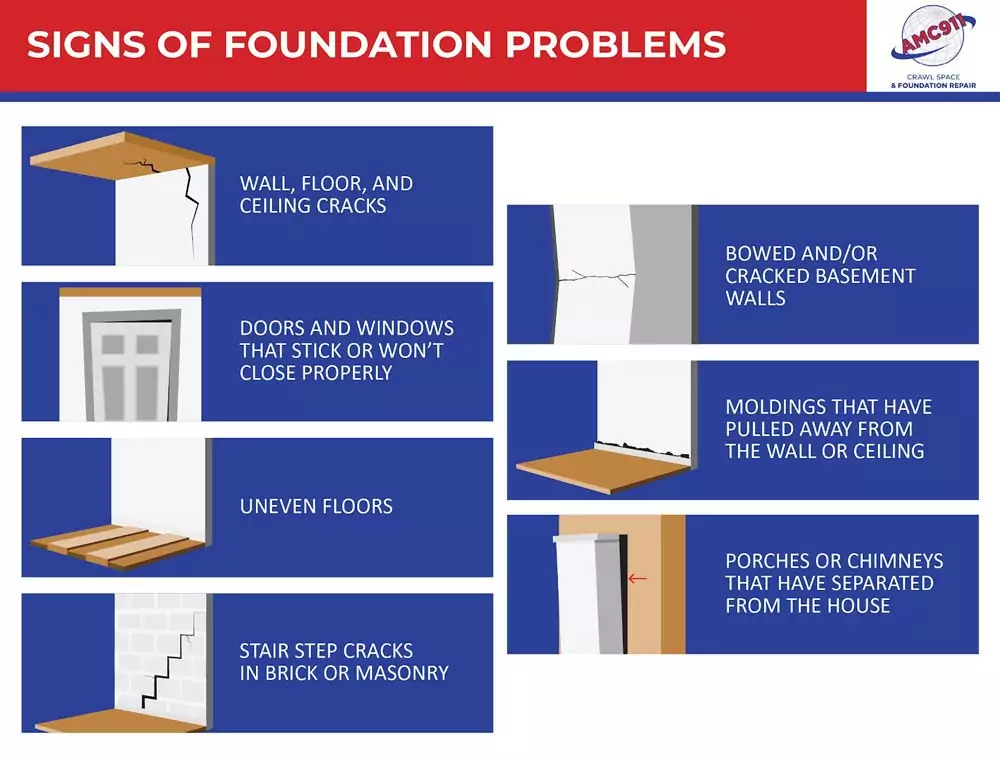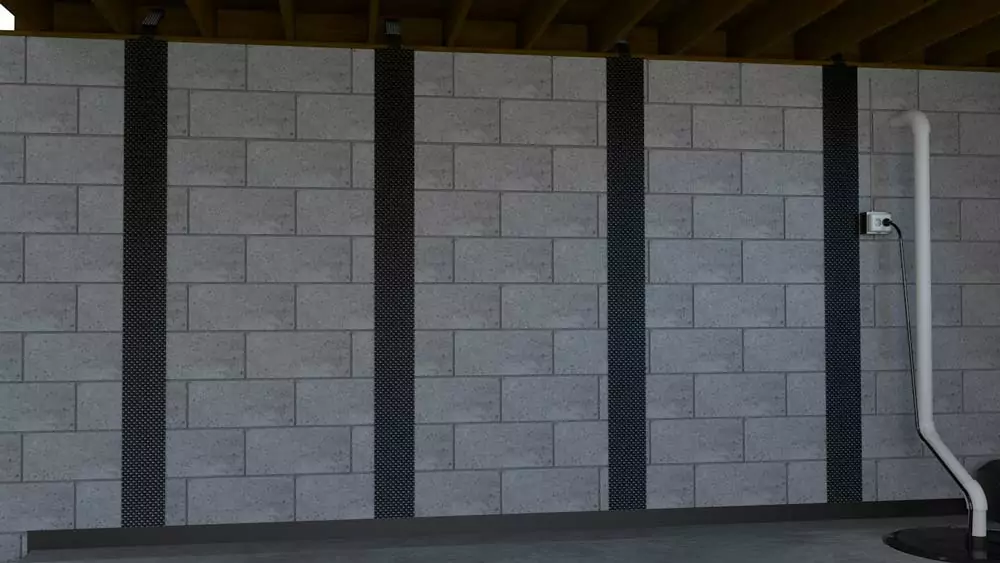Are you a homeowner who has recently discovered a crack in your foundation wall? If so, your mind is likely filled with questions and concerns about the severity and potential impact of this issue. Yes, foundation wall cracks can be alarming, but the good news is that not all of them are as serious as they may seem. Some foundation wall cracks are mainly just ugly. Being able to tell the difference between a structural and non-structural (“mainly just ugly”) crack can help you to know if further assistance is needed.
In this blog post, we’ll review the different types of foundation wall cracks, their causes, and how you can determine if a crack is a cause for concern. By understanding more about these cracks, you’ll feel better equipped to address them and protect your home’s structural integrity.
Common Types of Foundation Wall Cracks
Vertical Hairline Cracks
These cracks are common in poured concrete foundation walls. They’re caused by shrinkage during the concrete curing process and aren’t typically cause for alarm. They are a cosmetic issue and can often be sealed using epoxy injection to prevent water from seeping through into a basement or crawl space.
Horizontal Cracks
Unfortunately, if you see a horizontal crack in a foundation wall, it is likely due to hydrostatic pressure, and is a serious problem. Hydrostatic pressure builds up when there’s poor drainage in the ground around the home and pushes against the foundation wall. If the pressure isn’t relieved, the foundation wall will eventually start to bow inward and even crack. Horizontal cracks are structural. In other words, they compromise your foundation’s structural integrity.
Stair Step and Diagonal Cracks
Stair step and diagonal cracks are also serious and could indicate a problem with hydrostatic pressure, differential settlement (when a foundation settles into the ground unevenly), frost heave, or some other problem.
How Do You Know If a Foundation Crack Is Serious?
A foundation provides solid support to a building and prevents it from collapsing. Therefore, any crack that appears in a foundation can be a cause for concern and should be inspected thoroughly.
There are a few key indicators that determine if a foundation crack is serious. These include:
- A crack wider than 1/8th of an inch
- A crack accompanied by bowing
- Horizontal cracks
- Diagonal or stair step cracks
- Any crack that’s getting bigger
It is vital to address foundation cracks as soon as they are observed to prevent further damage and ensure the safety of the building’s occupants. Any crack, regardless of size or location, should be examined by a professional to determine the appropriate course of action. Failure to address foundation cracks promptly can lead to costly repairs and decreased property value.
Other Signs of Foundation Problems
Cracks in foundation walls are only one of the many possible signs that the foundation is in trouble. Other signs, perhaps subtle, could occur in other areas of the home as well and include the following:
- Sticking Windows and Doors – When the foundation sinks and settles, it can affect the window and door frames. As a result, the frames may get out of square, and the windows and doors could begin sticking when you open and close them.
- Uneven or Sloping Floors – You may not notice a problem with a sloping floor visually, but you might feel as if you are stumbling or have vertigo as you walk across the room.
- Cracks in Walls and Ceilings – If you notice cracking occurring in the drywall, it may be a problem with the foundation. A tremendous amount of pressure is placed on the home’s frame as the foundation shifts, leading to cracks in the walls and ceilings. If a crack extends across the ceiling and down a wall, this is a telltale sign that problems are occurring.
- Problems with Chimneys and Porches – A cracked or leaning chimney could indicate there’s a problem with either the foundation under the chimney or the foundation under the house. A porch that’s pulling away from the house is also a sign of a foundation problem.
Can Foundation Wall Cracks Be Fixed?
The good news is foundation wall cracks and any underlying problems can be repaired. However, repairing foundation wall cracks is not a DIY project. It requires a professional contractor with the right equipment and experience to do the job. Here are a few possible solutions:
Underpinning
If the foundation wall cracks occur due to differential settlement, then underpinning is a possible solution.
The underpinning process involves sinking push or helical piers into the soil until they reach load bearing strata or bedrock. At that point, they can be attached to the foundation to provide support. A synchronized hydraulic lifting system can also raise the foundation as much as possible without causing damage.
Carbon Fiber Straps
When hydrostatic pressure causes the foundation walls to crack, tough, carbon fiber straps can be used to strengthen and stabilize the wall.
Helical Wall Anchors
Helical wall anchors can also provide support for walls cracked and bowed due to hydrostatic pressure.
Epoxy Crack Injection
Hairline vertical cracks caused by shrinkage can be injected with epoxy to fill and seal the crack. This prevents any moisture from coming through the foundation wall.
If you have a crack in your foundation wall, contact AMC911 today to schedule a free foundation inspection and receive a repair estimate.

